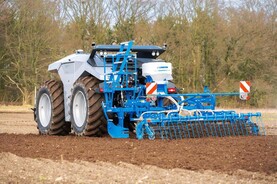The Department of Agriculture has made changes to over-winter stubble and catch crop requirements under the Agri-Climate Rural Environment Scheme (ACRES).
Over-winter stubble in ACRES originally required farmers to cultivate stubbles. This is the opposite to over-winter stubble under the nitrates derogation rules, which means that stubbles are not cultivated and left in-situ until 1 February.
The Department is now changing its over-winter stubble requirements under ACRES and is giving farmers two options. The first is to leave stubbles uncultivated until 1 February to provide food and a habitat important for many endangered birds, and the second is to cultivate stubbles within 14 days of harvest and to leave it in-situ until 1 February, the original action under the scheme.
Over-winter stubbles which have not been cultivated allow birds to access seeds and insects on top of the ground. This is also an important habitat for some ground-nesting birds.
Catch crops
The other change under ACRES is on catch crops. Five new species have been added to the prescribed species list. They include: balansa clover, squarrosa clover, brown mustard, fodder radish and a kale/rape hybrid. The seed mixes must contain at least two species, but farmers should not have any more than one species at 60% of a full sowing rate in the mix. Seed must be certified. Farm-saved seed is not permitted.






 This is a subscriber-only article
This is a subscriber-only article









SHARING OPTIONS: